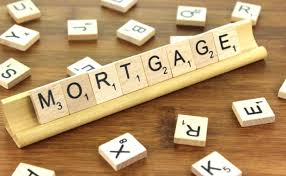
As a mortgage professional there are things I wish more people were aware of which is why we are going to take a look into the paperwork we all need to hold onto to avoid frustration or even a decline when applying for a mortgage. Each of the following is taken from real life observations of everyday folks just like you and I.
1. Separation Agreement – When you apply for a mortgage one of the first questions we ask is marital status. If your answer is separated or divorced then the banks are going to want to see the official document. They are seeking to ensure that you do not have any alimony or child support payments which will make it difficult to pay the mortgage. The legal system only keeps these documents for 7 years after which you will not be able to get a copy. Your marital status is reported on your tax return which can trigger the request for this documentation long after it seems relevant.
2. Proof of Debts paid– Keep all records of debts you have paid! Here are three real world examples.
a) Client A has paid off her mortgage, receives verification from the bank and promptly destroys the paperwork at a mortgage burning party just like on the commercial. Due to a clerical error the debt as paid is not reported to land titles so the mortgage remains vested against the property adding additional steps when she goes to get a new loan.
b) Client B pays out his truck loan in full and receives a letter stating this. Due to a clerical error the interest accrued shows a small outstanding balance. The client believes all is well while the small debt quickly hits a written off status on the credit bureau and he is declined for a mortgage three years later.
c) Client C settles with a collection agency on a debt gone bad – The debt is not reported as paid to the credit agencies and the ‘ongoing’ bad debt causes a large drop to her score and she pays higher rates than she should. The collection agency has since gone out of business and there is no record of the payment to be found.
3. Bankruptcy/Orderly Payment of Debts – As with the separation agreement, the trustee will only keep a copy for 7 years. When you apply for a mortgage, the bank will want to ensure they were not affected by the bankruptcy and also to determine if there was a foreclosure. Even though this information is supposed to fall off the credit report that is not always the case.
4. Child Maintenance – whether paying or receiving child support, you will want to keep all correspondence in regards to this to ensure you are receiving the appropriate credit for monies paid or have been given all the money you were supposed to have received.
Emotionally you have valid reason to want each of these documents so far away from you but realistically you are likely to need them at some point. There are a number of online services such as Dropbox or Google Drive where you could scan these to yourself and save them digitally. Alternatively, you could spend a small amount of money on an accordion style file folder and go old school with actual paper copies of all of the above applicable to your situation.
If you have any questions, please contact me your local Dominion Lending Centres mortgage specialist.
Contact me for your best mortgage options 705.669.7798 or trina@ndlc.ca
#trinamortgages #mortgages #ndlc #freedomofchoice
#bestmortgageforme #executive #firstimehomebuyer
If you found this information valuable, I only ask that you share with your friends and family.
Copyright DLC








